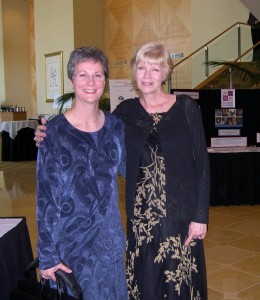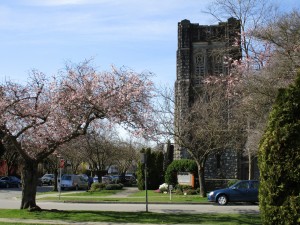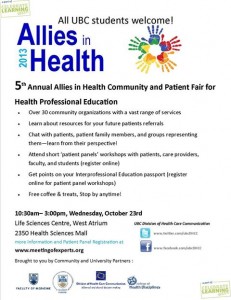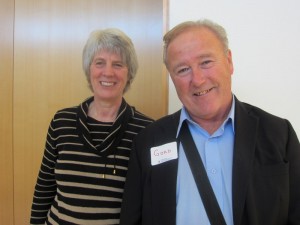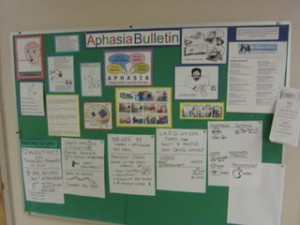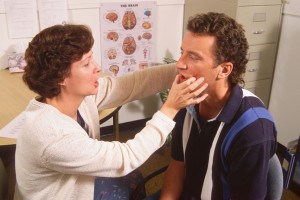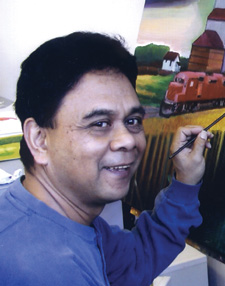List of 26 Great Life Experiences
1. Camp Latona
2. Little Flower Academy – high school
3. Solo trip to Europe
4. Purdue University — SLP study, work as a staff resident, trips to Chicago, Toronto, and New Orleans
5. Marshfield Clinic — clinical fellowship in Speech-Language Pathology
6. SLP work at GF Strong Rehab Centre — community outreach service, outpatient program, special, memorable clients
7. Volunteer at Vancouver Writers Festival — picking up writers at the airport, including Rohinton Mistry (his first trip to Vancouver and I showed him around Granville Island on the way to his hotel) and hosting a couple of memorable events, including ones with Alberta Manguel, Michael Moore, Sherman Alexie and many others
8. Went to a Harvard Continuing Education week in Boston on “The Neurology of Behavior” hosted by Antonio Damasio . Also managed to squeeze in a Vancouver Canucks vs Boston Bruins game at the old Boston Garden. Pavel Bure scored the overtime winning goal 4-3. On that same trip, I took the train up to Stamford, Connecticut to see very good old friends (Martha and Phil) and had a personalized tour of the highlights of New York City that included an elevator ride to the top of one of the World Trade Center towers.
9. Travel to visit good friend in Vermont and drive through several states and see the fall colours in Quebec, New Hampshire and Maine as well as Vermont
10. Finding my biological family in 1997 and a new cousin in 2014.
11. Daniel and the summer of 1998
12. Buying my dream house in 1999
13. Many trips to Merville, Vancouver Island and Saturna Island, thanks to generous friends
14. Road trip to Yosemite National Park via Washington, Oregon and California coasts in 2000
15. Trip to Helsinki, St. Petersburg (Russia) and the Baltics (Lithuania, Latvia, Estonia) in 2001
16. Trips to Haida Gwaii — first one solo in 1996 and second one with Daniel in 2002
17. Winning media award from national SLP organization and going to St. John’s Newfoundland to receive the award in 2003.
18. Founding of the BC Aphasia Centre (2000) with lengthy article by Daphne Bramham in the Vancouver Sun (2003), Volunteer Vancouver Award nomination and CBC National Radio interview with Shelagh Rogers, June 24, 2004 ( see media page )
19. Provincial jobs — great opportunity to learn new skills and learn more about the diversity of British Columbia with two contract positions: Coordinator for “Strengthening Families and Youth” with Canadian Mental Health Association, BC Division, and Provincial Consultant for Pediatric Therapists, contract through the Ministry for Children and Youth. The website I started is still there!
20. My dad’s death — I wrote a special letter to my dad on his 75th birthday to make sure that he knew how important he was to me in my life. When he declined suddenly with aggressive cancer two years later, I was glad that I had done that as we had little time for quality conversation. A talented friend help me make a beautiful funeral card for him.
21. Politics – I enjoyed getting involved in federal politics and went to my first national convention in late 2006. Being involved with the election of our local MP last year was also a life highlight.
22. I got involved with the Women’s Campaign School with the Canadian Women Voters Congress . I was president from 2008 to 2011. I met a lot of interesting people and learned a lot in that time.
23. Florida and astronauts. We were invited to the launch of STS-125 by a Purdue colleague, Drew Feustel, in 2009. It was a great and memorable experience. The year before I had a chance to meet Marc Garneau , Canadian astronaut through politics, (I found myself in a foyer alone with him and told him about Drew Feustel whom he referred to as “the half-Canadian”); John Herrington , the first American Indigenous astronaut, through a friend who was working on a children’s show through APTN. And then we got to meet Drew’s crewmate and space walk partner; John Grunsfeld , when he was giving a lecture at UBC about repairing Hubble and his experiences as an astronaut. Drew’s wife Indi let him know that we were attending the lecture so it made it easy to approach and chat with him before the talk.
24. Being present for my mother’s death in 2010 and organizing a funeral with her ahead of time and having it work out so beautifully.
25. Being well enough to travel again with Daniel, with a trip to Washington, DC, Long Island (to see my sister) and NYC.
26. Being well enough to enjoy life — good food, riding my bike, seeing friends again after changing my diet and becoming inspired and a follower of Dr. Terry Wahls and having the chance to meet her !
